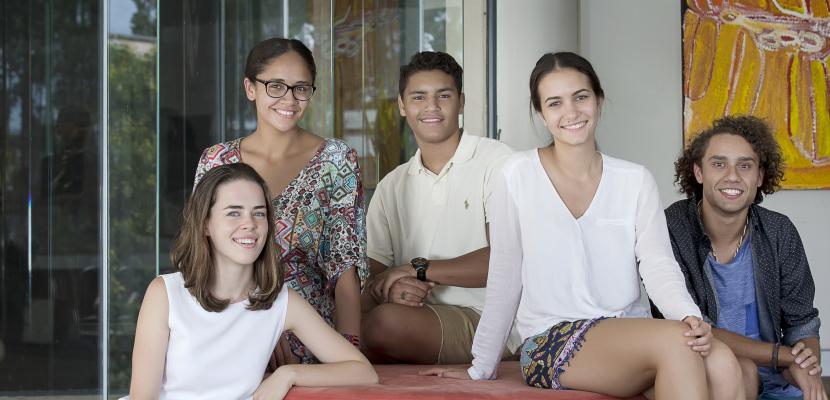
Figures released today by Bond University shows the institution has a 96 per cent Indigenous student retention rate for undergraduates, well above the national average of 71 per cent and the national non-Indigenous student retention rate of 80.8 per cent.
Since 2012, Bond has invested more than $4.18 million in scholarships, bursaries, support services and outreach programs for Indigenous students, leading to a 79 per cent growth in Indigenous student numbers. Earlier this month, its unique ‘Yarning Up’ initiative won the prestigious 2016 Premier’s Reconciliation Award.
Catherine O'Sullivan, Pro Vice-Chancellor, Pathways and Partnerships at Bond University, said improving access to higher education was the first step towards ‘closing the gap’ between Indigenous and non-Indigenous Australians.
"The link between completing high school and long-term career success is tertiary education, which is why Bond University is committed to creating specialised university pathways for Indigenous students," she said.
"All Australians deserve equal access to higher education to transform their lives and their futures, providing the opportunity to become role models for their fellow peers and communities.
"Bond University has awarded 59 scholarships to Indigenous students in the last five years, however we do more than simply provide places in our programs - we combine financial assistance with a personalised teaching approach, cultural support through the Nyombil Centre and mentoring programs such as AIME to assist the next generation of Indigenous leaders towards success.
"Our Indigenous undergraduate student retention rate of 96 per cent is proof that our approach is working.”
Bond University is also seeing an increasing number of Indigenous students pursuing higher levels of education, with three students from the latest cohort of Bond University graduates alone opting to commence Masters or PhD studies this semester.
Among them is Dani Larkin, who has just completed a Master of Law focusing on corporate and commercial law, and will now embark on PhD studies examining the role of law and policy in Indigenous cultural identity and political participation.
Ms Larkin grew up on an Aboriginal mission outside Grafton and has worked in a legal capacity for a number of government agencies including the Australian Federal Police, Department of Public Prosecutions ACT, Australian Taxation Office and the Aboriginal and Torres Strait Islander Legal Service.
"My PhD research will look at Australia's colonial history and the effect it has had upon the deprivation of Indigenous human rights, and use that as a backdrop to analyse contemporary society and how we can increase Indigenous interaction with the political system," she said.
"In order for Indigenous people to fully exercise their citizenship rights in a political sense, there needs to be more active participation with the political system, so my research will look at ways we can increase Indigenous voting and also increase the number of Indigenous political candidates in Parliament.
"My pop was an Aboriginal elder who instilled in me the importance of embracing my cultural heritage, and my great grandfather was an influential Indigenous activist who was one of the founders of National Sorry Day.
"There is an enormous amount of influence throughout my family history, and I feel as if I am the next generation exploring these opportunities for change and stepping into that advocacy space."
Pro Vice-Chancellor O'Sullivan said it was incredibly rewarding to see a growing trend of Indigenous students transitioning into postgraduate studies.
"Dani has showed tremendous dedication and leadership throughout her studies thus far and I offer my congratulations and best wishes as she embarks on the next chapter of her education," she said.